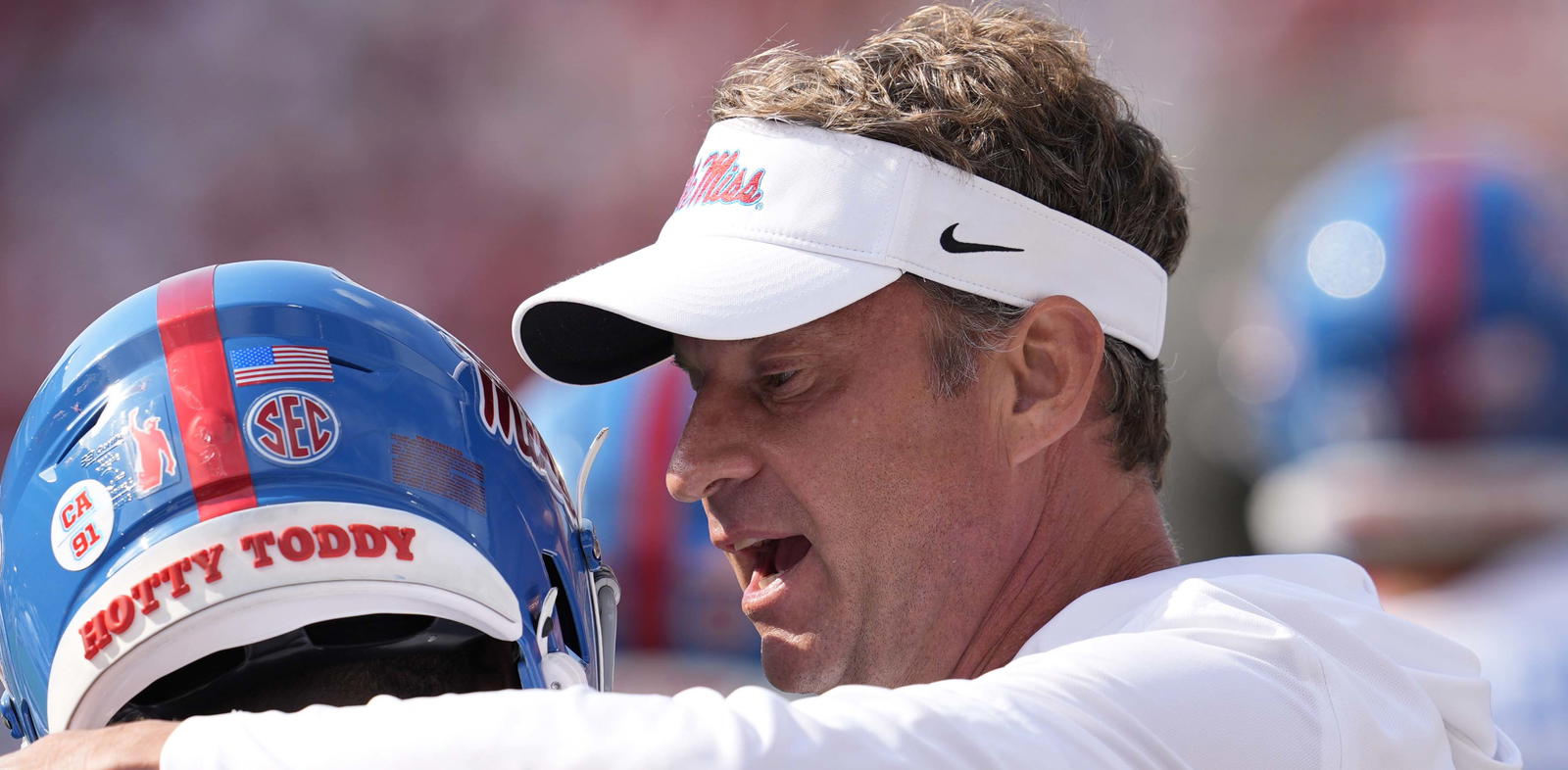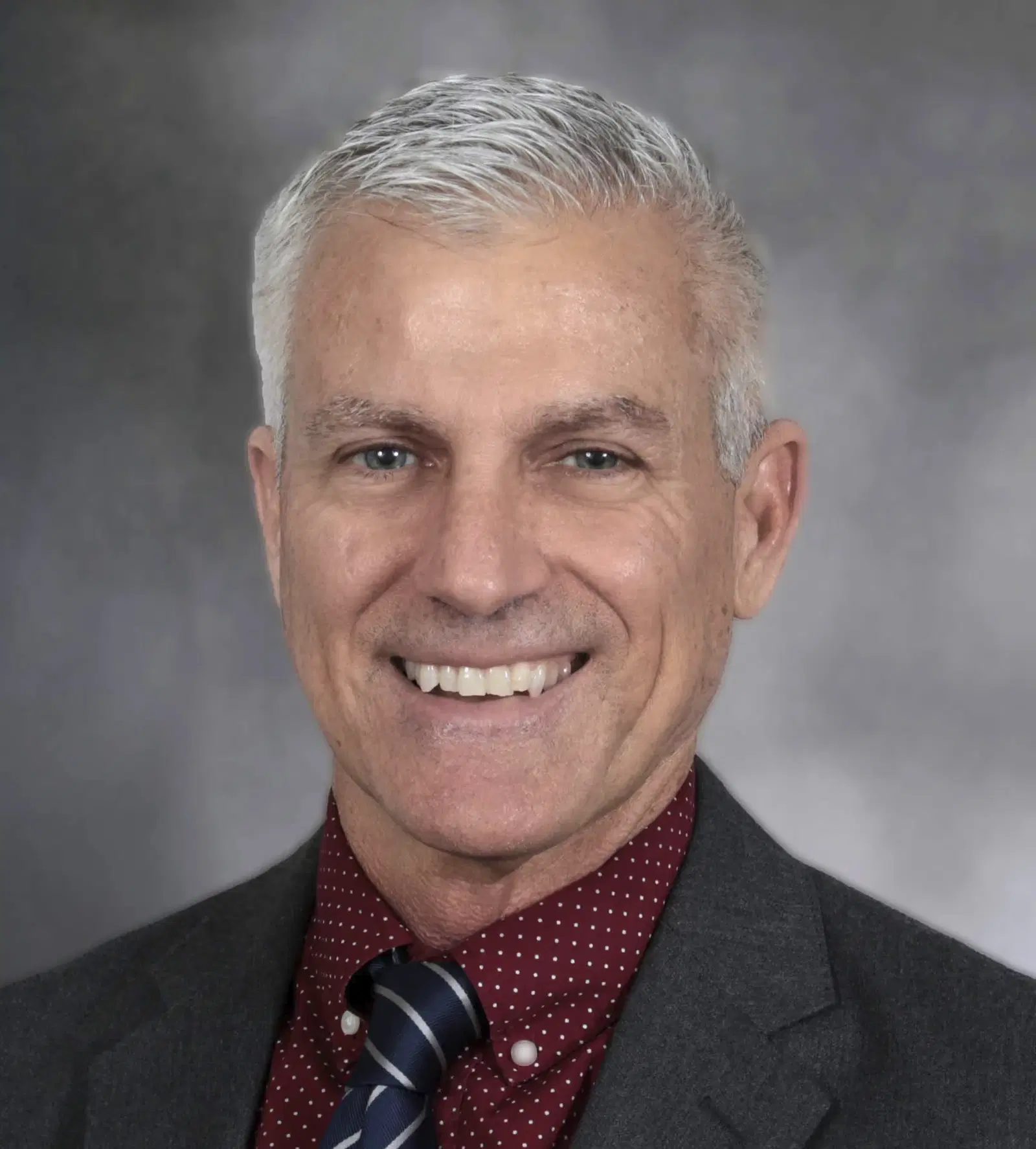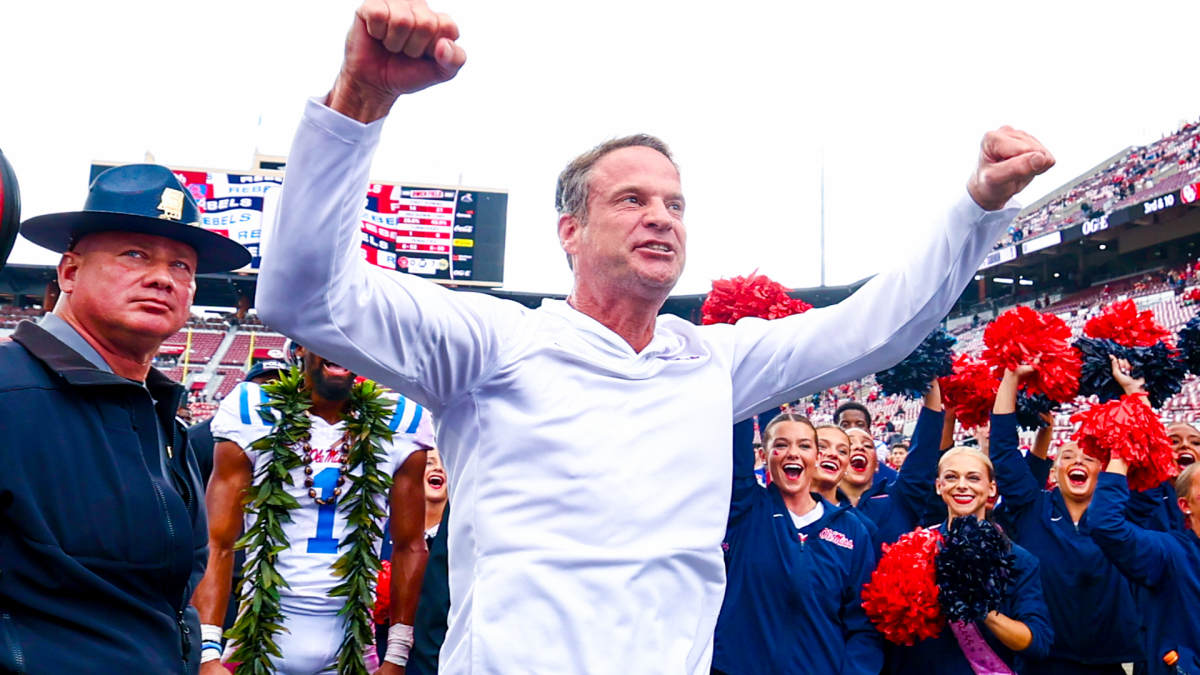
Since the glory days of Urban Meyer and Steve Spurrier, Florida football has cratered into mediocrity. With the possibility of their sixth losing season in the past 14 years, the Gators must nail their next coaching hire.
Is the University of Florida still an elite football program?
Ask Urban Meyer, who won two national titles seemingly forever ago with the Gators. Elite? No. “The standard has dropped.”
Unless interim coach Billy Gonzales and the team can change their current trajectory, Gators fans are looking at six sub-.500 finishes under four coaches in the past 14 seasons -- or since Meyer’s departure in 2010.
But digging out of this hole is complicated. Once upon a time, with Meyer and Steve Spurrier before him on the UF sidelines, it was a given that the Gators would never be outsmarted on a football field. The recently fired Billy Napier insisted on calling his own plays and the Gators failed to compete at the highest levels.
Now the attention turns back again to Athletic Director Scott Stricklin. He has nurtured 13 national titles in other UF sports but is 0-for-2 with his football hires. Most observers would say the roster is full of talented players, but the coaching imagination is absent. Is current Ole Miss Lane Kiffin that guy? Or is he an “impulse buy” for a Gator football program desperate to be relevant again?
Either way, Stricklin must get it right this time or he could be the athletic department’s next buyout.
It might offer some hope to the Florida faithful to remember that the Alabama Crimson Tide was in the same predicament this century — a legendary program in tatters. Enter Nick Saban and the painful decade before him now seems a distant memory..
In the national title conversation, the Florida Gators have been on the outside looking in for almost a generation now. How did they get into this rut and how might they get out?
Lower Standard, Decline in Results
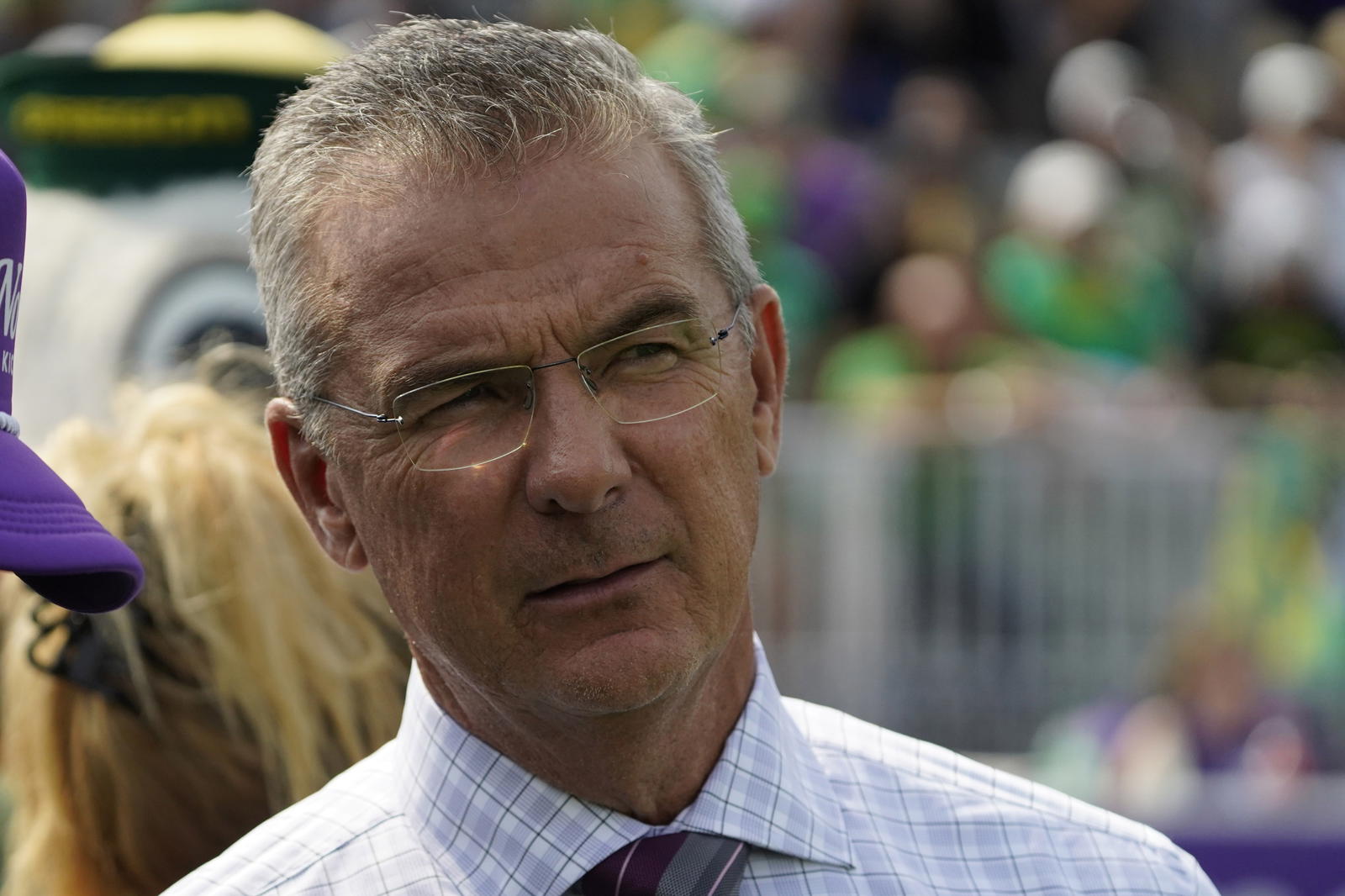 Urban Meyer (David Banks-Imagn Images)
Urban Meyer (David Banks-Imagn Images)Perhaps the most damning assessment of Gator football has come from Meyer, now working as an analyst for FOX Sports. Meyer said that expectations at Florida are dramatically lower.
“When I took over the Florida Gators, you knew what the expectations were – national championship. That’s not it any more at Florida. It’s just not. It’s ‘Let’s get to the SEC Championship Game.’ “
Of the four most recent coaches, only Dan Mullen had led a nationally prominent program, having built Mississippi State into a competitive SEC team. Mullen was also offensive coordinator during Meyer’s national title seasons at Florida in 2006 and 2008.
Neither of Stricklin’s hires — Mullen from Mississippi State and Napier from Louisiana — had experience as a head coach managing the huge expectations and pressures of an elite program.
A pattern of hiring coaches without top-flight credentials has been a major factor in why the Gators have fallen from the sport's upper echelon — and have cost Florida $50 million in buyouts. The program's struggles under the past four coaches demonstrate that Florida has lost the organizational discipline and vision required to maintain championship standards.
Football Pays for Everything
 Ben Hill Griffin Stadium (Kirby Lee-Imagn Images)
Ben Hill Griffin Stadium (Kirby Lee-Imagn Images)Stricklin often promotes the overall success of Florida's athletic program, as well he should. Men’s basketball won the 2025 NCAA title. Women’s track won the 2022 indoor and outdoor national championships. But the reality is that football is the financial engine that powers Florida athletics.
The SEC television contracts generate more than $50 million annually per school. Florida's football program brings in $70-80 million annually through ticket sales, concessions, donations, and media rights, dwarfing the revenue from all other sports combined.
Ben Hill Griffin Stadium's capacity of nearly 90,000 makes it one of the largest stadiums in college football and, when the Gators are winning, one of the most intimidating venues.
The university is planning a $398 million renovation of The Swamp, one of the most expensive stadium projects in college football history.
The coaching search will further demonstrate football's financial supremacy. Industry insiders expect Florida could offer an annual salary of $9- $13-million, potentially making their next hire one of the five highest-paid coaches in college football.
For all of Stricklin's talk about the well-rounded success of Florida athletics, the financial reality is undeniable: Football is what matters most to the fan base, the donors, and the university's bottom line.
The investments in coaching salaries, buyouts, and stadium renovations demonstrate that Florida's status as an elite athletic destination depends on football's success — regardless of how many softball or gymnastics titles they win.
The Lane Kiffin Fever Dream
 Steve Spurrier (© RVR Photos)
Steve Spurrier (© RVR Photos)The hiring search has quickly coalesced around one name: Ole Miss head coach Lane Kiffin.
Spurrier recently said that Kiffin would be his top choice, calling him "the best offensive mind in college football." Former Florida wide receiver Chris Doering, now an SEC Network analyst, says Kiffin represents the kind of proven, innovative coach who can restore the program to national prominence.
Most media analysts covering the SEC have placed Kiffin at the top of Florida's wish list, noting his track record of success at Ole Miss (34-15 over four seasons), his reputation as an elite recruiter, and his offensive creativity that has made the Rebels one of the most explosive teams in the conference.
A report by Gator Bait Magazine editor and publisher Buddy Martin on Friday said that Florida is prepared to offer an annual salary of $13.5 million to Lane Kiffin to leave Ole Miss and come to Gainesville.
This longing for Kiffin -- or someone of his caliber -- reflects how spoiled Florida fans have become. Under Steve Spurrier (1990-2001), the Gators won six SEC championships and the 1996 national title while revolutionizing college football with the Fun 'n' Gun offense.
Urban Meyer (2005-2010) won two national championships in his first four seasons and consistently fielded teams that competed for titles. Both coaches had an aura of tactical superiority. Gator fans went into big games confident that their coach would outscheme the opposition.
The past 14 years have been soured by coaching mediocrity and tactical disadvantages in crucial games.
The desire for Kiffin represents more than just wanting a good coach, it's a cry for the return of offensive imagination that defined Florida's glory years. Minus a coach who can inspire both confidence in Gator Nation and fear in opponents, Florida will remain nationally irrelevant, regardless of talent or resources.
The Rehabilitation of Alabama
 Nick Saban (© Brett Davis)
Nick Saban (© Brett Davis)Even the most prestigious programs can endure extended periods of mediocrity. After national championship winner Gene Stallings retired as Alabama coach in 1996, Alabama entered an 11-year wilderness. Three coaches (Mike DuBose, Dennis Franchione, and Mike Shula) combined for a 75-62 record with multiple losing seasons. The Crimson Tide suffered through NCAA sanctions and the humiliation of watching rivals such as Auburn, LSU, and Florida dominate the SEC.
Everything changed when Saban arrived in Tuscaloosa in 2007. Saban, a national title winner at LSU in 2003, immediately restored championship standards and recruiting dominance.
By 2009, the Tide had won their first national title since 1992. Over the next 15 years under Saban, Alabama became the greatest dynasty in college football history, appearing in nine College Football Playoff semifinals and winning six championships. With the right leadership, Bama not only recovered but achieved unprecedented heights.
Both Alabama and Florida are programs with rich traditions, massive resources, and passionate fans. Both had the financial capacity to make a transformative hire if they chose the right leader. Alabama's administration recognized they needed to break the cycle by hiring a proven winner at the highest level, even if it meant paying top dollar.
Reasons for Optimism
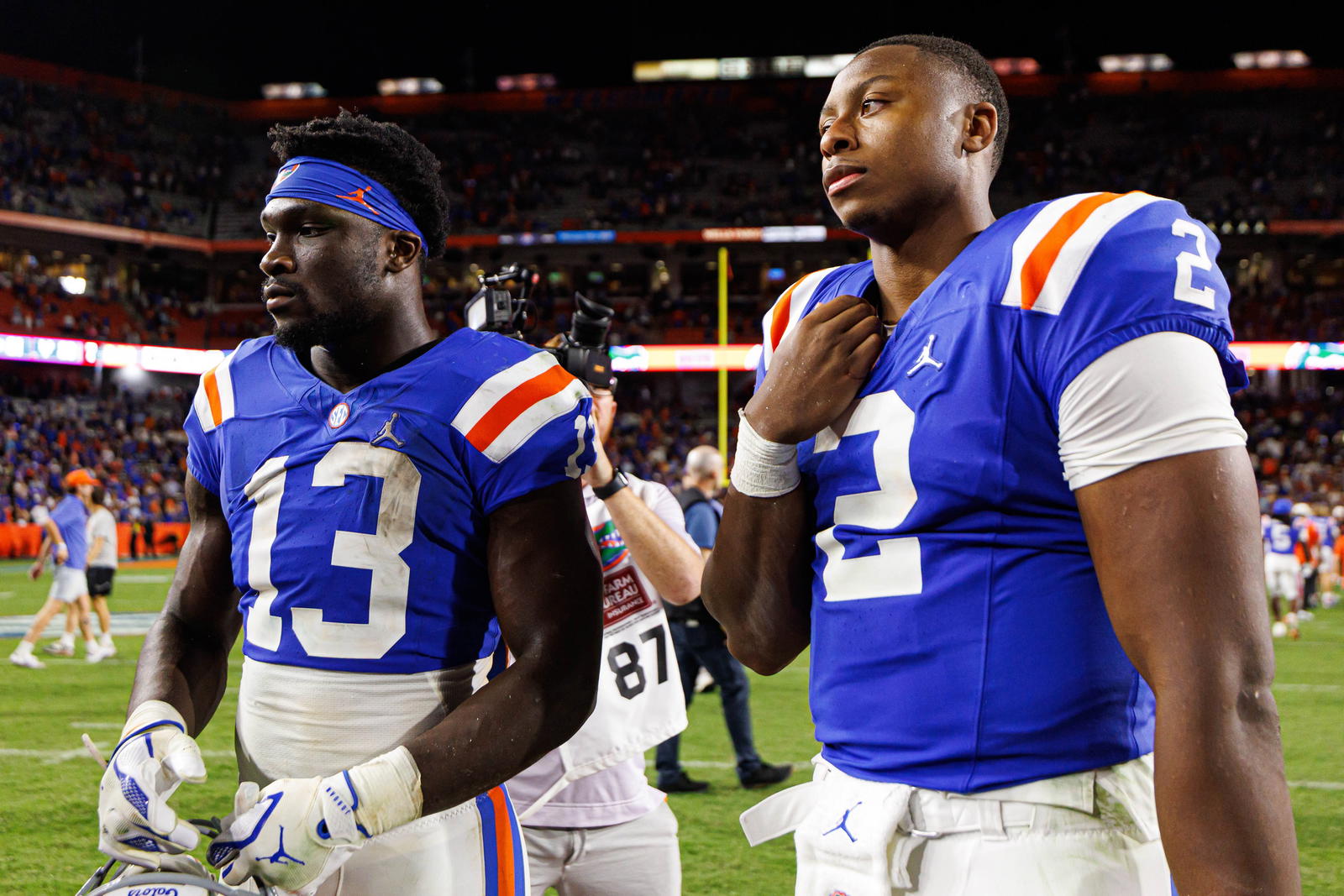 Running back Jadan Baugh and quarterback DJ Lagway (Matt Pendleton-Imagn Images)
Running back Jadan Baugh and quarterback DJ Lagway (Matt Pendleton-Imagn Images)Despite the chaos created by a midseason firing, Florida's roster is loaded, inspiring hope for a quick turnaround.
Sophomore quarterback DJ Lagway is one of the most promising young players in college football, demonstrating NFL-caliber arm strength. Sophomore linebacker Myles Graham is a defensive standout and team leader. Both players, along with several other key contributors, have publicly stated their commitment to remaining at Florida. Their decisions to stay could persuade other players to resist the transfer portal's temptation.
Beyond the current roster, Florida's recruiting efforts haven't suffered despite the on-field struggles. According to 247Sports' composite rankings, Florida holds commitments from multiple four-star and five-star prospects in the 2025 recruiting class, ranking among the top 15-20 programs nationally.
But the reality of modern college football is that verbal commitments mean little until National Signing Day next February and the transfer portal has made roster building a year-round challenge.
A new coach will need to secure the current commitments while also hitting the transfer portal to address immediate roster needs. The advantage Florida has is that good coaches attract good players. If the Gators hire someone such as Kiffin or another proven winner, the recruiting momentum could shift dramatically in their favor almost overnight.
The combination of existing roster talent, strong recruiting position, and the impending $400 million stadium renovation creates both opportunity and pressure for Stricklin. The pieces are in place for a successful program: a steady pipeline of recruiting money from its NIL collective, young stars committed to staying, an area of the country loaded with prep talent, and massive facility investments.
But these advantages matter only if Stricklin hires well. The next coach will determine whether the Gators restore their place among college football’s best programs or add to the missed opportunities in this extended decline.
“We were certainly winners, when you look at our record,” Spurrier said of his 12-year tenure at Florida. “I think that’s what they (Gators fans, major boosters and the UF athletic department) want.”

